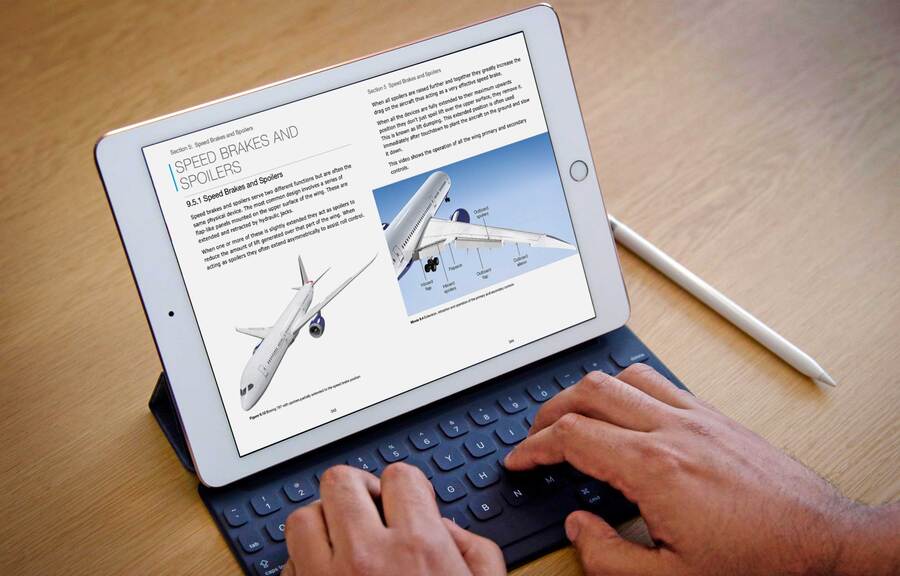Whether studying for initial or recurrent training, preparing for an interview, or seeking personal development, employing effective learning methods can significantly boost your retention and comprehension. Studying is a highly personal experience that varies from person to person. What clicks for one person might not work for someone else, so staying patient and trying different approaches is essential. By embracing this process of self-discovery and consistently evaluating what works best for you, you will steadily improve your ability to absorb and retain new knowledge. Learning is a dynamic process that can be improved through various techniques and strategies. Here are four research-based tips and tricks to help improve your learning experience.
1. Undivided Attention: Quality vs. Quantity
Undivided attention is essential for effective learning. In today’s digital age, distractions are everywhere, posing a significant challenge to maintaining focus while studying. To maximize productivity, carve out dedicated study periods free from digital distractions such as your phone, social media, or other interruptions. Research highlights that concentrated, uninterrupted study sessions, even if brief, have better results than longer sessions fragmented by multitasking.
In addition to phones and social media, numerous other distractions can hinder effective studying:
Background noise can significantly disrupt concentration. Whether it’s the television, nearby conversations, or street sounds, these noises can distract attention from study materials. Using noise-canceling headphones or relocating to quieter study environments can effectively mitigate these distractions.
A cluttered study environment is another potential pitfall. Visual distractions from disorganized desks or scattered materials can divert attention. Keeping your study area tidy and organized promotes clarity of thought.
Notifications from emails, messaging apps, or device software updates can interrupt concentration. Temporarily disabling or silencing these notifications helps maintain an uninterrupted focus on studying.
Eating and drinking proactively is essential to prevent breaks that can disrupt concentration. Having readily available snacks and water minimizes the need to stop studying.
Social Interactions, whether from family members, roommates, or friends, can disrupt concentration. Communicating the need for uninterrupted study time can help minimize interruptions during critical study sessions.
2. Use Quizzes (and flashcards)!
Quizzes are a powerful tool for active recall–a learning technique that helps with memory retention. Instead of passively reviewing notes, actively engage with the material by using Smartcockpit.com quizzes and by using flashcards. This will help you understanding and reinforcing key concepts through repetitive practice. Recalling information from memory strengthens neural pathways associated with that knowledge, making it easier to retrieve in the future.
3. Location Matters
The environment in which you study can significantly impact your learning outcomes. Create a space that is conducive to learning by minimizing distractions, optimizing lighting and temperature, and organizing study materials efficiently. Understanding your preferences for lighting, noise level, and comfort can help create an optimal study environment. Additionally, studying in different locations for different subjects or tasks can prevent monotony and increase information retention by associating specific environments with specific types of learning.
4. Other Effective Techniques
Beyond specific strategies like using Smartcockpit.com quizzes or finding the right study environment, several general techniques can improve your overall learning experience:
Pomodoro Technique – Use the Pomodoro Technique to structure your study sessions. Work uninterrupted for 25-30 minutes, then take a 5- to 10-minute break. After completing four Pomodoro cycles, take a longer break of 15-30 minutes to rest and recharge fully. Adjust the timing based on your concentration levels and study goals.
Interleaved Practice – Mix up different topics or types of problems within a study session instead of focusing on one subject exclusively. This technique challenges your brain to make connections between related concepts and promotes deeper understanding and retention.
Active Learning – Engage with the material actively by summarizing, teaching others, or applying concepts to real-world scenarios.
Review and Reflect – Regularly review what you have learned to reinforce memory retention. Take time to reflect on your progress, identify strengths, and pinpoint areas that need improvement. This reflective practice helps to understand and encourages continuous learning and growth.
Seek Feedback – Actively seek feedback from instructors, peers, or through self-assessment to gain insights into your understanding of the material. Feedback helps you identify misconceptions, clarify doubts, and prioritize areas needing further attention.






